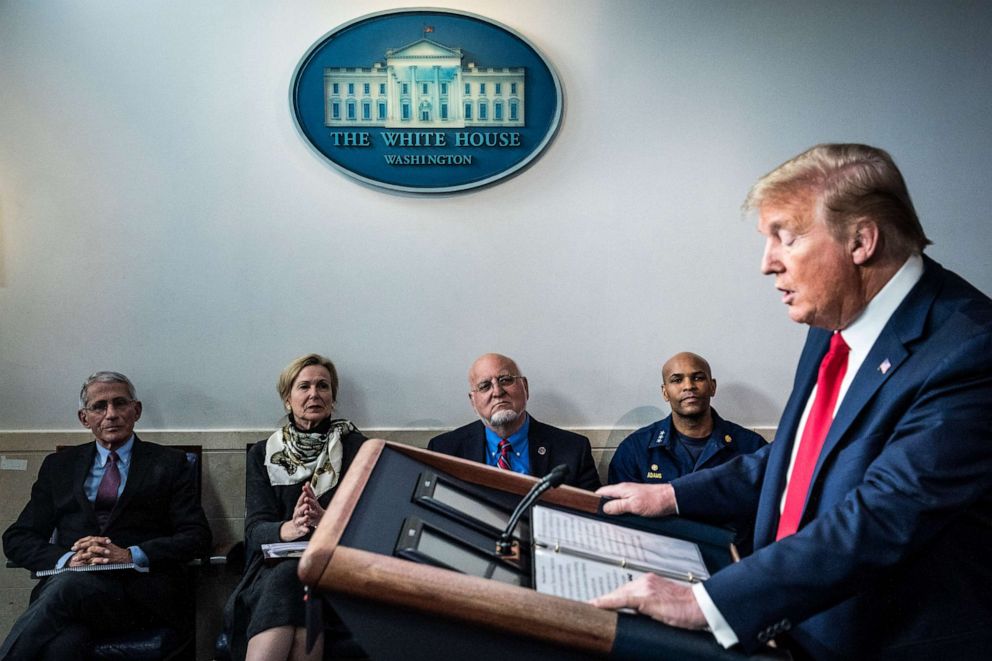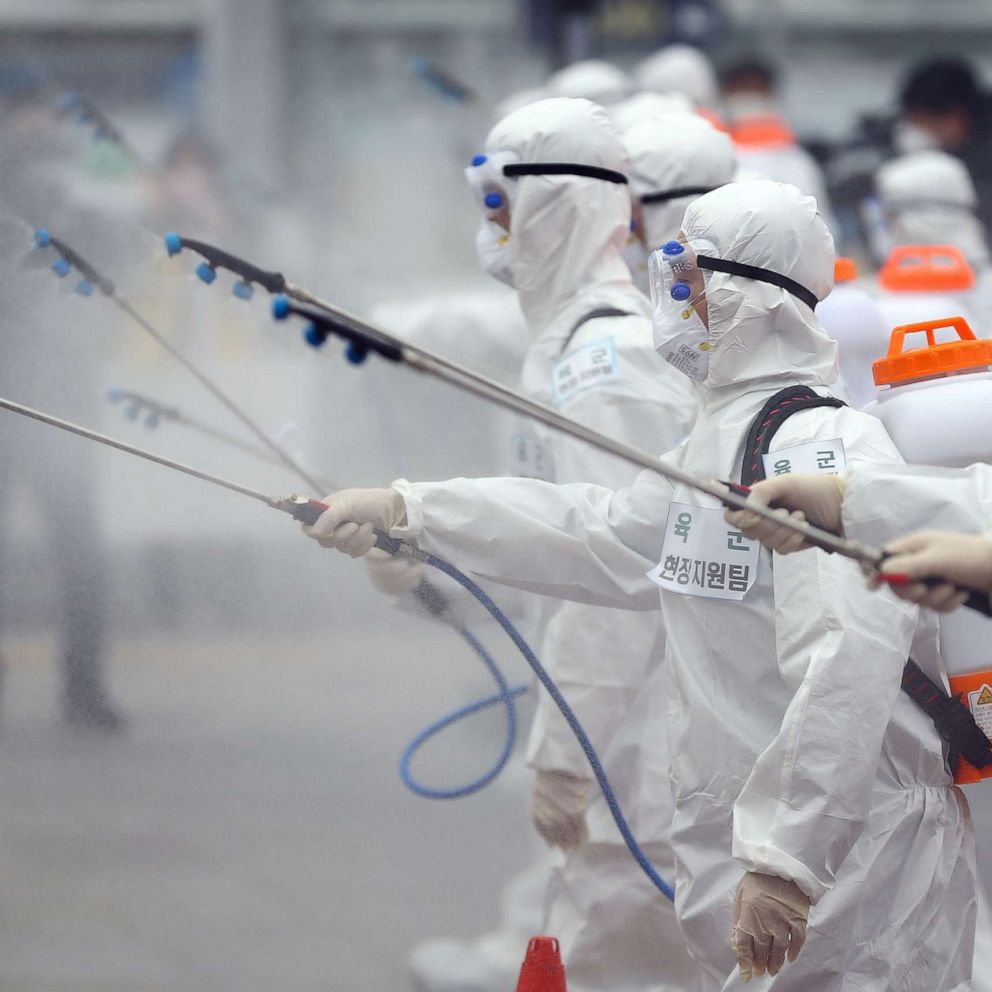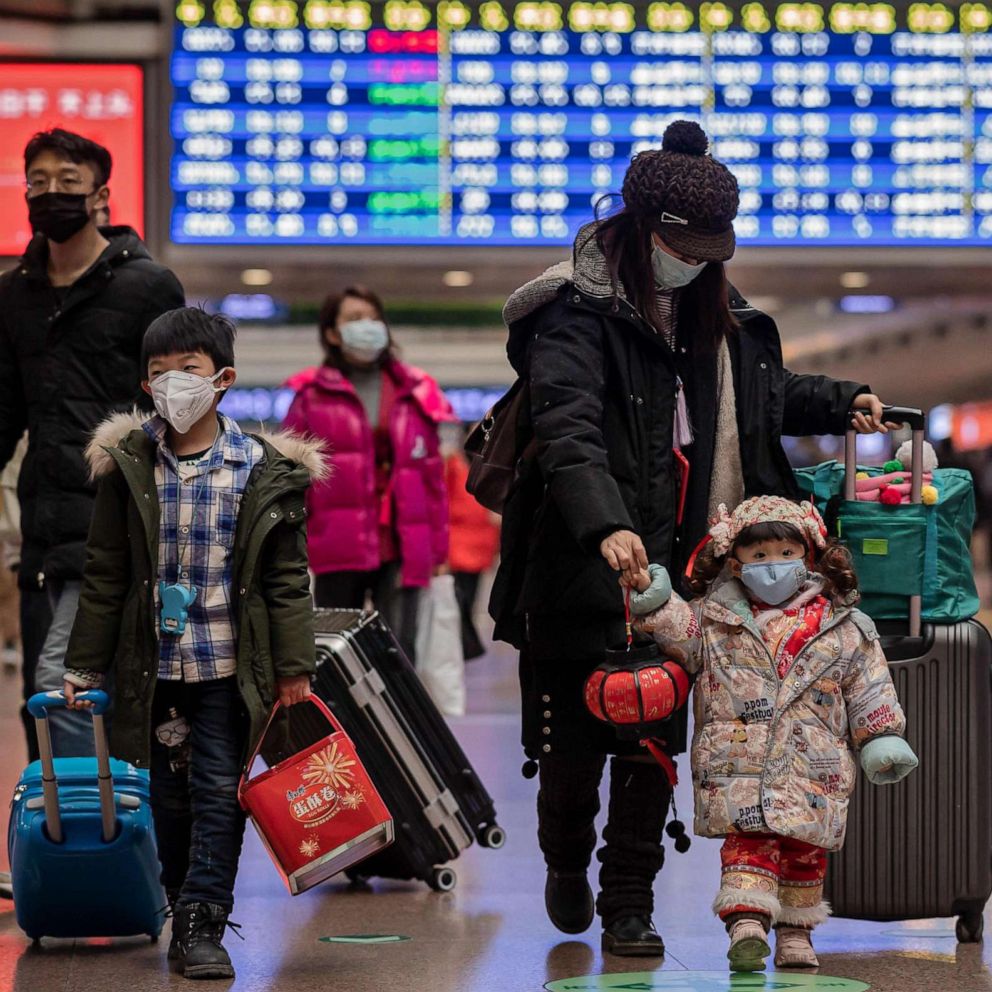Trump administration considers further restrictions on foreign workers
Despite being hit hard by coronavirus, foreign workers remain a target.
The White House is expected to consider further restrictions on foreign workers following President Donald Trump’s pledge to "suspend immigration" last month, according to administration officials tasked with a 30-day review of all visiting workers.
The presidential proclamation, originally billed as an outright suspension, was not immediately effective given the travel restrictions already in place as a result of the coronavirus. It did, however, order a review of all policies regarding temporary visas, including those held by people currently in the U.S.
Trump administration officials at the Department of Labor and the Department of Homeland Security have now submitted recommendations. Multiple Homeland Security officials who declined to be named in describing the deliberations said the DHS recommendations were focused on economic "risk" to U.S. workers.
"We are reviewing all options to ensure that U.S. workers are prioritized for employment as we undergo the largest economic comeback in history," Homeland Security spokesperson Harry Fones said in a statement to ABC News.

In recent weeks, the administration has loosened hiring requirements for employers who rely on essential foreign workers in agriculture and other industries critical to maintaining the U.S. food supply chain.
The easing up on H-2B hiring came despite protests from advocates favoring tighter restrictions. Some Republican Senators have also called for a full suspension of guest worker visas.
Tune into ABC at 1 p.m. ET and ABC News Live at 4 p.m. ET every weekday for special coverage of the novel coronavirus with the full ABC News team, including the latest news, context and analysis.
The economic toll of the coronavirus has disproportionately impacted foreign-born workers, even as they remain the target for potential restrictions. While the unemployment rate hit a historic high of 14.7% in April, it was higher among foreign-born workers — at 16.5% — according to the Bureau of Labor Statistics.
The new restrictions could amount to long-term obstacles that last beyond coronavirus, independent experts say, as the uncertainty of economic recovery looms over the country.
“Couching it as a way to address the economic crisis guarantees the longevity of these policies because the economic crisis will be here far longer than the public health crisis,” said Sarah Pierce, an analyst at the Migration Policy Institute.
The State Department has already suspended new visa processing which will lessen the immediate impact of any new restrictions on legal travel into the country, Pierce noted.
Jennifer Hunt, an economics professor at Rutgers University, said continuing immigration restrictions even as the economy starts to turn around would stifle recovery efforts.
“Having more people is like a stimulus package because they arrive and buy goods and services including housing, boosting overall GDP which would reduce unemployment even though the newcomers are joining the labor force,” Hunt told ABC News. “Such a stimulus would also boost GDP per capita.”
What to know about coronavirus:
- How it started and how to protect yourself: coronavirus explained
- What to do if you have symptoms: coronavirus symptoms
- Tracking the spread in the US and Worldwide: coronavirus map







